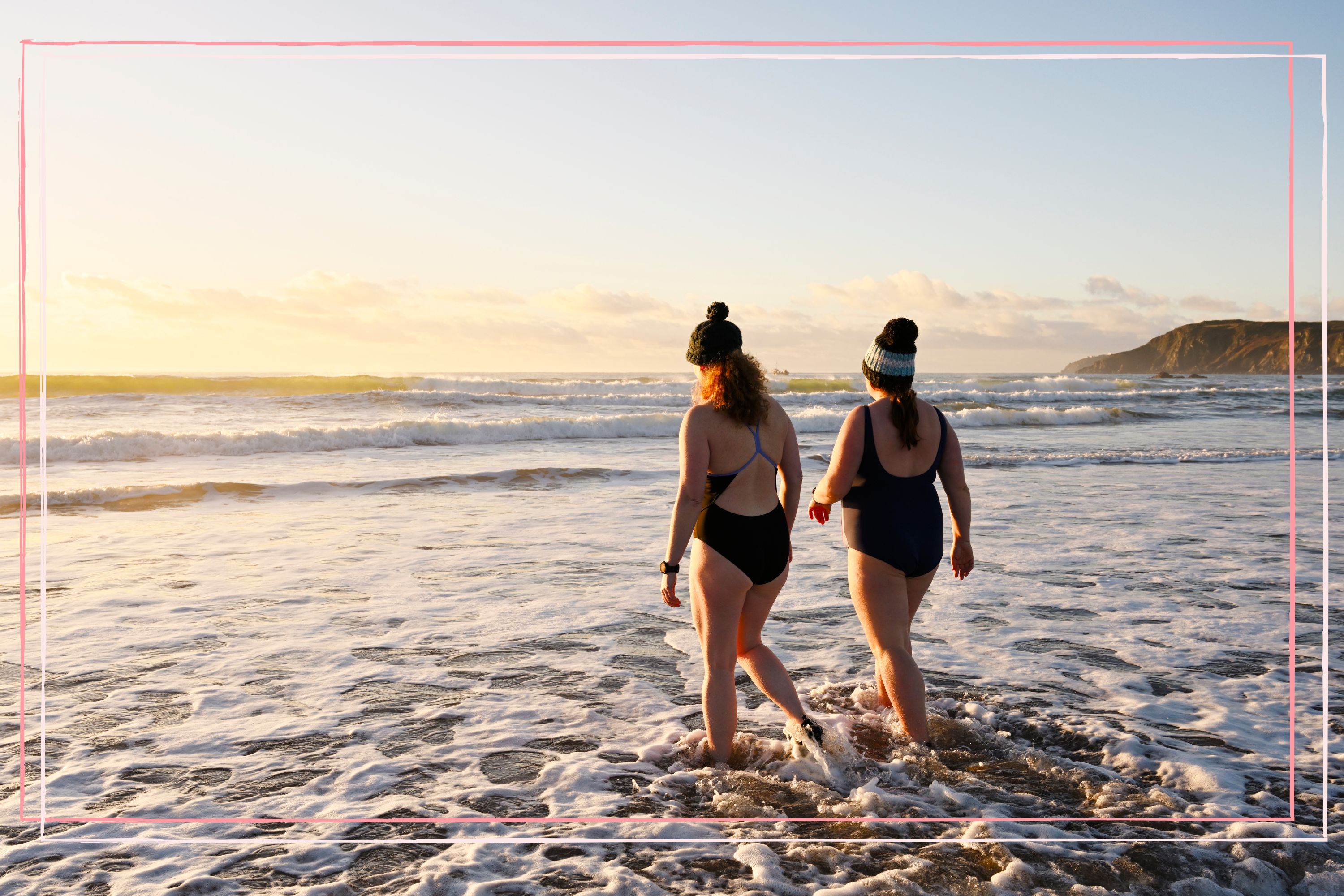Does being cold burn calories and is the cold good for your health?
Will turning the thermostat down help you lose weight or will it just leave you cold and miserable? We asked the experts


Whether you embrace the cold or prefer to stayed wrapped up and warm, there's no denying that cold showers, cold water swimming and cold winter walks have grown in popularity as natural remedies to a variety of mental and physical health conditions. But while there are certainly some benefits, cold exposure as a weight loss solution has shaky scientific backing at best.
While no one should feel under pressure to lose weight, you may be wondering if a daily dip or even a lower room temperature can sway the answer to ‘how many calories do I burn in a day’ in your favour.
Of course, as Superintendent Pharmacist at Pharmica, Carolina Goncalves reminds us, there are no quick fixes to long-term weight loss: "Maintaining a calorie deficit by consuming fewer calories than you burn through a combination of diet and exercise remains the best way to achieve long-term weight loss."
Does being cold burn calories?
Yes, being cold does burn calories. This is because being cold increases the energy needs of your body, which can therefore lead to burning slightly more calories.
Superintendent Pharmacist Carolina explains more: "When you are exposed to cold temperatures, your body has to work harder to maintain its core temperature. This is a process known as thermogenesis, which can result in a small increase in calorie burn."
There are two types of thermogenesis, and one is more well-known than the other. You’ve probably noticed that when you get cold, you tend to shiver, which involves your muscles involuntarily contracting to create heat and maintain core body temperature. The second type is called ‘nonshivering thermogenesis’. This takes place in fat cells called brown adipose tissue, which uses stored fat to generate heat.
At this point, it’s important to understand that as adults we only have a small amount of brown adipose tissue. Humans have most brown fat when newborn, at which stage brown fat makes up 2-5% of total body weight. According to research, this declines with age, and leaner people with a lower BMI retain most brown fat activity. As studies to date show, women also often have higher brown fat activity than men.
Parenting advice, hot topics, best buys and family finance tips delivered straight to your inbox.
So the extent to which you burn calories when cold is unquantifiable, as we are all unique. However, a small study in 2001 by Maastricht University researchers proved that thermogenesis does increase the amount of calories burned. The study compared the energy expenditure of nine males who spent 60 hours in a room kept at 16 degrees celsius compared to 22 degrees celsius. They found that in the colder room they burned 4-6% more calories.
Does your body burn more calories in the cold?
Superintendent Pharmacist Carolina says: "No, you don't necessarily burn more calories when you're cold compared to when you're hot."
This is because your body also has to work hard to keep itself cool in hotter temperatures.
Several studies have attempted to clarify whether exercise in hot or cold environments uses more energy, and there is no clear consensus yet. However, only low intensity exercise at a cooler temperature will burn more calories when compared the same exercise at an ambient temperature. This is because if the exercise itself is not strenuous enough to warm you up, your body still has to compensate through thermogenesis. Basically, if your body has to shiver, you’re using extra calories. This effect is demonstrated by a study conducted on walkers in Wyoming, which found that they expended 34% more calories in winter compared to spring.
On the other hand, when you start exercising with higher intensity, for example running, your body is sufficiently heating itself up through physical activity, so you won’t get that extra calorie burn.
Superintendent Pharmacist Carolina concludes: "It's also important to note that body type, fitness level and acclimatisation to the temperature, will all affect the number of calories burned during exercise. So what works for one person may not necessarily work for another."
Does being cold increase metabolism?
Being cold may boost your metabolism temporarily, but not drastically enough to impact weight loss in the long-term.
Superintendent Pharmacist Carolina explains: "When the body is cold and begins shivering to achieve thermogenesis, brown fat tissue generates heat by burning calories. This process can increase the metabolic rate, leading to an increase in calorie burn." But this will only last while you are cold.
However, there is some evidence that if you are continually exposed to colder temperatures, you may experience a more significant increase in your metabolism, as your body adapts to the environment and develops more calorie-burning brown fat cells. One 2014 study, published in Diabetes journal, showed that after a month of exposure to mild cold (19 degrees celsius), five healthy young men experienced a 42% increase in brown fat volume and a 10% increase in fat metabolic activity.
These changes were almost completely reversed when the temperature returned back up again to 24 degrees celsius. And although the participants didn’t experience a change in body composition, as well as the increase in brown fat cells, the men did exhibit improved insulin sensitivity. This is why brown adipose tissue remains a subject of interest for researchers seeking treatments for conditions such as obesity and diabetes.
Is being cold good for weight loss?
No. While research regarding brown fat has prompted interest, it is not an advisable nor currently viable solution to weight loss.
The small amount of calories you may cut by being cold for an hour would far more safely and comfortably be taken out of the equation by exercising for slightly longer, increasing your steps or swapping a sugary snack such as a chocolate bar for a healthy snack, like an apple.
Nutrition Manager at the British Nutrition Foundation, Dr Annette Creedon explains: "Although activating brown fat could result in an increase in energy expenditure, this could be a very small increase and it is also possible that you may feel hungrier as a result and therefore eat more."
Indeed a literature review found that people tend to eat more after exercising in the cold, compared to exercise in warmer temperatures, which can actually induce a loss of appetite.
Is the cold good for you?
Whether the cold is good for you or not depends on the individual and the conditions of exposure. There are some benefits, but also some risks to consider.
Superintendent Pharmacist Carolina shares some of the health benefits of cold exposure:
- Improved immunity: Cold temperatures can boost the immune system by stimulating the production of white blood cells.
- Reduced inflammation: Cold exposure can reduce inflammation in the body, which is a common contributor to many chronic diseases.
- Better circulation: Cold exposure can improve blood circulation, particularly in the extremities, by constricting blood vessels and pushing blood back towards the heart.
- Stress relief: Cold-water face immersion has been shown to lower heart rate, which has a calming effect and can help to reduce stress and anxiety levels.
- Enhanced athletic performance: Cold exposure, such as ice baths, can help to reduce muscle soreness and improve recovery after intense physical activity.
A post shared by The Outdoor Swimming Society (@theoutdoorswimmingsociety)
A photo posted by on
Meanwhile, the health risks include:
- Hypothermia: This can occur when the body loses heat faster than it can produce it, leading to a dangerously low body temperature.
- Frostbite: This occurs when the skin and other tissues freeze due to exposure to cold temperatures. It can cause permanent tissue damage and even amputation in severe cases.
- Heart problems: Cold exposure, especially sudden exposure to cold water, can put additional stress on the heart and potentially trigger cardiac events in individuals with pre-existing heart conditions.
Nutritionist Dr Annette Creedon concludes: "Deliberately making yourself cold is not a good idea, especially among older and more vulnerable people."
Everyone should be cautious when exposing themselves to the cold, for example during cold water swimming. And if you have any existing medical conditions, you should only do so after consultation with a medical professional such as your GP.
Video of the week

Carolina is originally from Portugal where she graduated with a six-year Pharmacy degree in 2009. After graduation, she gained 5 years of experience working as a community pharmacist and has worked with online pharmacies since 2014. Her experience has allowed her to develop vast expertise on a wide range of healthcare topics and conditions ranging from sexual health to skin care as well as matters of general health.

Annette has a BSc (Hons) Nutritional Sciences and a PhD in Food Technology from University College Cork, Ireland. Following several post-doctoral contracts where she worked on dietary factors influencing bone turnover, she joined the academic staff at Harper Adams University, Shropshire, UK. She developed undergraduate programmes in food technology and nutrition and became Head of the Food Technology and Innovation Department in 2017. She has also collaborated with the food industry in the development and delivery of bespoke training programmes and has undertaken various consultancy projects with food companies.
Annette’s role at the British Nutrition Foundation involves supporting collaborations with academics and research groups to further research activities and support dissemination of research findings to relevant stakeholders.

Jenny Rowe joined Future in January 2022 as Senior Health Writer on Woman&Home, Woman and Woman’s Own magazines. She graduated from Oxford University with a degree in English Literature in 2016. Since then she has worked within the editorial teams at Country & Town House and The Chelsea Magazine Company, alongside writing for The Independent, Breathe and Planet Mindful. She’s a keen cross-country runner and triathlete with a love of the great outdoors and a passion for the world of women's wellness.

